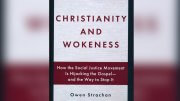As we go through life we build walls of resentments that are designed to protect us from hurt, rejection, fear, loneliness and other circumstance related issues. However, in time, we realize we are imprisoned by our own walls of protection; but are afraid to get out from behind them for fear of experiencing the unpleasant things that caused us to build them in the first place.
I’ll resort to a silly illustration to teach this complicated dilemma. From the mug-shot accompanying this article you see I am bald. This doesn’t bother me, but it is a major issue for many. For the sake of illustration, let’s say I am bothered by this condition.
What do I do? I see at least three options.
I could wear a wig or get a hair transplant. I haven’t checked but imagine both are rather expensive. Or, I could wear a baseball cap, but this is only limited or partial protection from those making fun of my appearance.
Theoretically, when I remove the hat, that is, step out from behind my self-built wall of resentment people will see I am bald. That is, I expose my hurt, rejection, fear, loneliness and other circumstance related issues.
With this as a backdrop, let’s look at the process of defining and our walls of resentment.
GOOD NEWS! We can be free of resentments even if the people around us do not change. John 8:32 assures us through these words: “And you shall know the truth, and the truth shall set you free.” This is a two-way street.
If you are not free you do not know the truth. If you are free you know the truth. Knowing the truth – about your self – is a sure path to personal freedom from any type or source of bondage.
We cannot undo our past, but we can undo its hold on our present and future. Earlier we defined unresolved anger and unresolved resentment as junk in your trunk, Now, let’s define resentment.
Resentment is anything that brings about a negative feeling, thought or action. To say that you resent something someone has done to you does not imply you do not like or love that person. It simply says you resent what they have said or done to you.
Harboring resentments causes patterns to develop that will control our behavior as we build our defenses against our hurts, rejections, fears, loneliness and other circumstance related issues. To break controlling patterns we need only to expose the resentment by giving it a name. In a previous lesson we saw if we could give the (problem) resentment a name the Bible would give us the tool to solve it.
To accomplish this we need to look at our resentments in seven areas of relationships. These are the areas that have the greatest impact upon us.
To complete this assignment, pray God’s Holy Spirit will search your heart and mind and reveal to you these buried resentments. Let His Spirit have the full freedom He needs to perform this life-changing work in you.
As the Holy Spirit reveals the unresolved anger and unresolved resentments to you don’t qualify them.
This is to say, do not try to decide whether or not the resentment is important or un-important. Do not think you are knit-picking by listing it. The Holy Spirit is looking for details that are establishing behavior patterns that are controlling you. By not recording them you may omit information that will allow Him to identify these controlling patterns.
If it comes to mind write it down.
List your resentments in the following areas that apply to you:
Things I resent about my: Father, Mother, Childhood experiences, Family, Marriage (yours or in general), Job or School (which ever is applicable), and God.
Even if the persons whose behavior you resent is deceased, write them down. You are not hurting them by doing so. You are simply saying you resent what they said or did.
Some do not want to list their resentments against God, but be realistic. All our resentments ultimately go back to God. He already knows what they are. And who do you think will be the first to forgive you? God!
This is not an easy assignment. Physically, mentally, emotionally and spiritually you will be ripping scabs off old sores and making them bleed all over again. But this process is as necessary as lancing a skin boil. If the puss is not drained infection sets in. Unresolved anger and unresolved resentments are poisoning to one’s behavior systems.
As you become aware of your unresolved anger and resentments write as much as you want to write or as little as you need to write to get it out. Take as much time as you need to express the pain of your pent up feelings and emotions. Follow the list as best you can, but always be ready to jot down a thought when it comes to mind. This is the Holy Spriit a work.
Do not share this list with anyone unless you are doing this exercise under the supervision of a Bible-based counselor. In the first instance, this is a matter between you and the Holy Spirit. In the second instance, this is a matter between you, the Holy Spirit and the counselor.
As you write your list review it periodically. You will begin to detect behavior patterns.
Next time, Breaking Down Our Walls of Resentments.
 Rev. Thomas (Tom) C. Lacy, Advisory Board Member of the Virginia Christian Alliance and Founder and Director, of New Hope Counseling Service.
Rev. Thomas (Tom) C. Lacy, Advisory Board Member of the Virginia Christian Alliance and Founder and Director, of New Hope Counseling Service.



